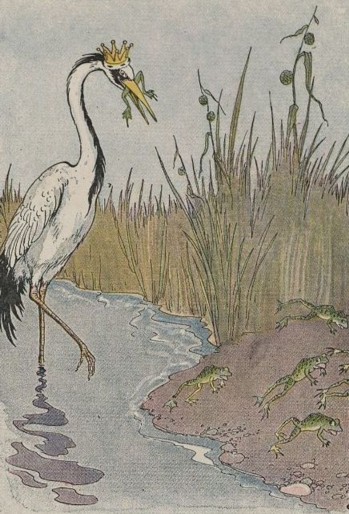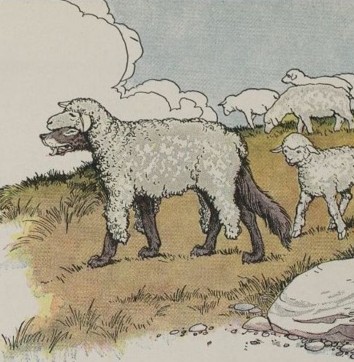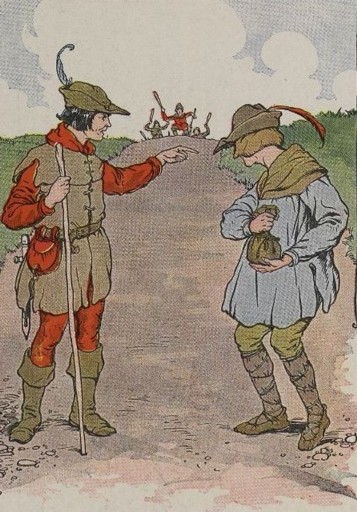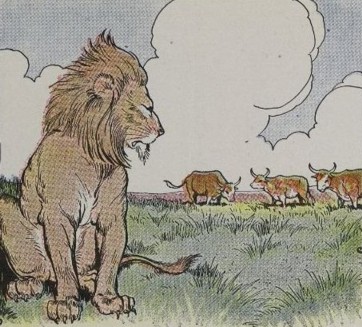| 1. govern | /GUHV-ern/ |
| -to rule over by right of authority: | |
| A young lad aims to govern the town and revive its economy. | |
| 2. freedom | /FREE-duhm/ |
| -the state of being free or at liberty rather than in confinement or under physical restraint | |
| A young manager quit his job because he values freedom over job security. | |
| 3. fearful | /FEER-fuhl/ |
| -causing or apt to cause fear; frightening: | |
| The fearful law enforcer made an innocent man admit to a crime he did not commit. | |
| 4. content | /kuhn-TENT/ |
| -satisfied with what one is or has; not wanting more or anything else. | |
| It is possible to be content and aim for growth at the same time. | |
| 5. platform | /PLAT-fawrm/ |
| -a horizontal surface or structure with a horizontal surface raised above the level of the surrounding area | |
| The teacher stood on the platform to get the attention of his students. |

Jupiter saw what simple and foolish creatures they were, but to keep them quiet and make them think they had a king he threw down a huge log, which fell into the water with a great splash. The Frogs hid themselves among the reeds and grasses, thinking the new king to be some fearful giant. But they soon discovered how tame and peaceable King Log was. In a short time the younger Frogs were using him for a diving platform, while the older Frogs made him a meeting place, where they complained loudly to Jupiter about the government.
To teach the Frogs a lesson the ruler of the gods now sent a Crane to be king of Frogland. The Crane proved to be a very different sort of king from old King Log. He gobbled up the poor Frogs right and left and they soon saw what fools they had been. In mournful croaks they begged Jupiter to take away the cruel tyrant before they should all be destroyed.
“How now!” cried Jupiter “Are you not yet content? You have what you asked for and so you have only yourselves to blame for your misfortunes.”
Be sure you can better your condition before you seek to change.
| 1. | What kind of king were the frogs given for the first time? |
| 2. | What kind of king were the frogs given for the second time? |
| 3. | What did Jupiter tell the frogs when they asked to take the crane away? |
| 1. | How would you describe the characteristics of the frogs? |
| 2. | Which king would you prefer, King Log or King Crane? Why? |
| 3. | Do you think the frogs learned their lesson in the end? Please explain. |
| 4. | The fable’s lesson is “Be sure you can better your condition before you seek to change.” Do you agree with this? Why or why not? |
| 5. | How important is personal growth to you? |
| Grammar 文法 |
Pronunciation 発音 | Vocabulary 単語 |
Comprehension 理解 |
|
|---|---|---|---|---|
 GOOD GOOD |
文法の誤りはほとんどなく、完全な文章で話すことができる | ほとんどの単語をはっきりと正しく発音することができる | 習った表現を適切に使うことができる | 文章を理解し、質問に正しく答えることができる |
 FAIR |
文法の誤りはあるが、完全な文章で話すことができる | 発音の練習が必要な言葉がいくつかある | たまにミスはあるが、習った表現を適切に使うことができる | 文章を完全に理解するのは難しく、質問に正しく答えられないときもある |
 POOR |
文章で話すのは難しく、単語だけで話すことができる | 発音の練習が必要である | 習った単語と表現を少しだけ使うことができる | 文章を理解するのは難しく、質問に答えるのは難しい |
An eBook from The Project Gutenberg.
This eBook is for the use of anyone anywhere at no cost and with almost no restrictions whatsoever. You may copy it, give it away or re-use it under the terms of the Project Gutenberg License included with this eBook or online at www.gutenberg.org







